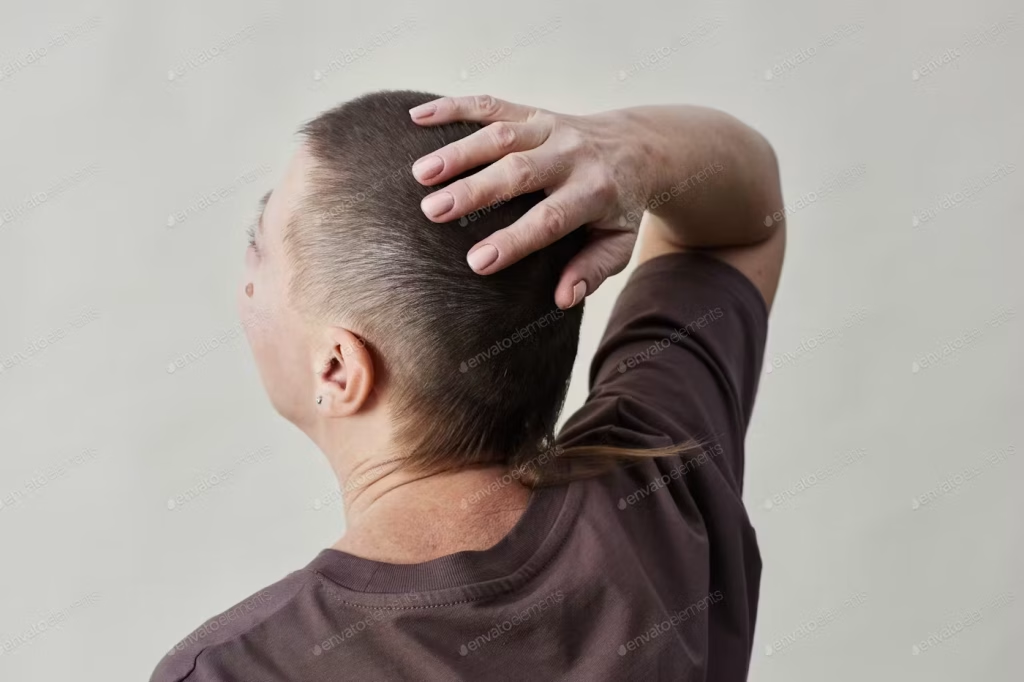Daily Hair Care Tips for Psoriasis-Prone Scalps
Living with scalp psoriasis can feel exhausting. The constant itching, flakes on your shoulders, and painful patches are more than just a nuisance, they affect your confidence and comfort every single day.
At Bragan Skincare, we believe that shampoo is only part of the solution. How you care for your scalp between washes matters just as much as the formula you use in the shower.
In this guide, we’ll share practical, dermatologist-informed tips for managing scalp psoriasis day-to-day, from washing routines to styling habits. Plus, we’ll explain how our snail mucin shampoo supports your scalp health every step of the way.
1. Choose the Right Shampoo
For many people with psoriasis, shampoo choice is the single biggest factor in flare-up control.
What to avoid:
- Coal tar and harsh medicated shampoos – while effective for some, they can dry out and irritate sensitive scalps.
- Fragrances and sulfates – these strip natural oils, worsening dryness and inflammation.
- Heavy botanicals or essential oils – can trigger sensitivity.
Why snail mucin works better:
Our Sensitive Scalp Shampoo is built around snail mucin, which provides:
- Hydration (hyaluronic acid locks in moisture).
- Barrier repair (peptides and allantoin strengthen scalp health).
- Gentle exfoliation (glycolic acid helps lift flakes).
- Calming effects (antioxidants soothe redness and irritation).
In short, it addresses the root needs of psoriasis-prone scalps: hydration, repair, and long-term resilience.
2. Washing Routine That Respects Your Scalp
The way you wash your hair can make or break your scalp health.
- Use lukewarm water. Hot water strips natural oils and worsens dryness.
- Massage gently. Don’t scratch, it only worsens redness and can cause bleeding. Use the pads of your fingers in small circles.
- Let shampoo sit. Leave snail mucin shampoo on for 3–5 minutes before rinsing to allow active compounds to absorb.
- Rinse thoroughly. Leftover product can trigger itching or buildup.
- Don’t overwash. 2–3 times a week is often enough, though our snail mucin formula is gentle enough for daily use if needed.
Pro tip: Alternate with a fragrance-free conditioner on the lengths of your hair (not the scalp) to prevent dryness.
3. Scalp Care Between Washes
Managing psoriasis isn’t just about what you do in the shower.
- Moisturise if needed. Apply a light, fragrance-free scalp serum or oil only if recommended by your dermatologist.
- Avoid scratching. Keep nails short, or use a soft scalp brush designed for sensitive skin.
- Protect from the sun. UV light can help psoriasis, but sunburn worsens it. Wear a hat if you’ll be outside long.
- Stay stress-aware. Stress is a well-known trigger for flare-ups. Build calming routines into your day.

4. Styling with Psoriasis in Mind
The wrong styling products can undo all your hard work.
- Avoid heavy gels and sprays. They build up and irritate plaques.
- Choose lightweight, fragrance-free products. These won’t clog follicles or inflame the scalp.
- Limit heat styling. Straighteners and blow dryers dry out the scalp. If you must use them, keep the temperature low.
- Don’t pick at scales. It can lead to infection and worsen inflammation.
Pro tip: If you need to part your hair to disguise psoriasis patches, use gentle clips rather than tight bands that pull on the scalp.
5. Lifestyle Factors That Support Scalp Health
Psoriasis isn’t just skin-deep, it’s linked to your immune system, stress, and overall wellbeing. Small changes can make a big difference:
- Balanced diet. Anti-inflammatory foods (like fatty fish, leafy greens, berries) support skin health.
- Hydration. Drinking enough water keeps your scalp from drying out.
- Stress management. Yoga, meditation, or even short daily walks can reduce triggers.
- Sleep. Quality rest allows your body to repair itself.
6. When to See a Dermatologist
Daily care helps, but sometimes professional input is needed. See a dermatologist if:
- Your plaques are painful, spreading, or bleeding.
- Over-the-counter care doesn’t improve symptoms.
- You’re unsure if it’s psoriasis or dandruff.
A doctor can confirm the diagnosis and recommend medical treatments alongside gentle care like our snail mucin shampoo.
FAQs: Daily Hair Care for Psoriasis
Q: Should I wash my hair every day if I have psoriasis?
A: Not always, 2–3 times per week is ideal. But if your scalp gets itchy or flaky quickly, our snail mucin shampoo is gentle enough for daily use.
Q: Can conditioners make psoriasis worse?
A: Some can. Stick to fragrance-free, lightweight conditioners, and apply only to hair lengths, not the scalp.
Q: Is it okay to dye my hair?
A: Many people with psoriasis can dye their hair, but avoid ammonia-heavy dyes and patch test first. Always give your scalp time to heal after flare-ups before colouring.
The Bottom Line
Living with scalp psoriasis means being mindful about how you care for your hair every day. The right shampoo is essential, but so are your washing habits, styling choices, and lifestyle factors.
That’s why at Bragan Skincare, we formulated our Sensitive Scalp Shampoo with snail mucin, offering hydration, soothing relief, and barrier repair, without the harsh ingredients found in traditional medicated shampoos.
Make daily care simple. Start with the right foundation: Explore our Snail Mucin Shampoo and give your scalp the gentle, effective support it deserves.
Featured Bragan Skincare Products
-
€39.99 – €100.00Price range: €39.99 through €100.00Select options This product has multiple variants. The options may be chosen on the product page
-
€100.00Select options This product has multiple variants. The options may be chosen on the product page
